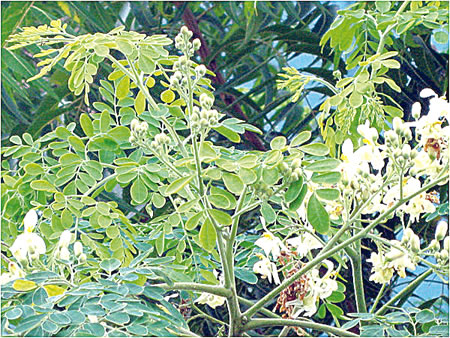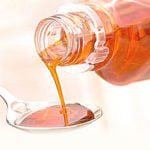
ARE you having problems with seeing well? Do you have difficulty driving at night because your vision is blurred? Well, if that poor vision is from glaucoma, Moringa oleifera, an adjunct treatment for controlling blood pressure, may also come useful to treat the early stages of glaucoma.
In a new study, researchers found that the use of Moringa oleifera has significant pressure-lowering effect on the pressure inside the eyes and blood pressure when given to adults with normal blood pressures.
Glaucoma is a group of eye conditions affecting over 60 million people worldwide. In most cases, glaucoma is associated with higher-than-normal pressure inside the eye, a condition called ocular hypertension.
Atiku US visa request: Over 200 NGOs storm US embassy in Abuja
But it also can occur when intraocular pressure (IOP) is normal. If untreated or uncontrolled, glaucoma first causes peripheral vision loss and eventually can lead to blindness.
For centuries, Moringa oleifera leaf is used in traditional medicine for common ailments in many countries of the world. Referred to as gbogbonise or ewe ile (Yoruba), zogalla (Hausa) or okochi egbu (Igbo), Moringa oleifera is economically useful as a source of food, natural medicine, animal fodder, forestry products, fertilizer and fuel.
Moringa oleifera is considered rich with several medicinal properties as all its parts have been reportedly engaged singly or with other plants for treating diverse illnesses and diseases, including malaria, typhoid fever, blood pressure, arthritis, diabetes, as well as to boost the immune system.
This clinic-based observational study had investigated the effect of graded doses of Moringa oleifera leaf water extract on intraocular and blood pressure of 30 adults.
The participants, with age ranging from 18 to 35, were drawn from the University of Benin Optometry Clinic in Benin City. They all had normal blood pressure values.
Alcoholics, smokers and those on medications for eye disease and hypertension were excluded from the study. Also, participants were instructed to abstain from all medications a week before and during the period of the experiments.
They were divided into three groups of 10 participants in each group. Another group of 10 adults were used as a control group. At the beginning of the study, the intraocular pressure and blood pressure (BP) of each participant were measured.
Different doses of Moringa oleifera water leaf extract were given to groups 1, 2, and 3 respectively to drink while group 4 participants drank water only. Thereafter the IOP and BP were measured at 30 minutes interval for the four groups until values returned to baseline.
The 2018 study documented in the Journal of the Nigerian Optometric Association involved Gladys George; Ajayi, O.B. and Oyemike, A.A., all from the University of Benin, Edo State.
Results showed that Moringa oleifera leaf water extract, when administered orally, has a significant pressure-lowering effect on IOP and BP of the three experimental groups.
The effect was dose-dependent and the maximum reduction in blood pressure was at 60 minutes. But the higher the dose of the water extract of Moringa oleifera leaf, the greater the fall in IOP and BP.
Before now, studies have shown that there are significant direct relationships between changes in the blood pressure in the body and changes in intraocular pressure in humans and animals.
The researchers said that since the maximum reduction in IOP occurred at 90 minutes, and thereafter IOP and BP rose toward baseline values, Moringa oleifera leaf water extract may be effective in the control of systemic and ocular hypertension.
However, they reasoned that Moringa oleifera leaf water extract blood pressure–lowering effect is due to its high potassium content. The main cause of hypertension is believed to be the increased level of sodium in the blood.
When the level of potassium in the blood decreases, the absorption of sodium naturally increases leading to high blood pressure. Potassium supplementation lowers blood pressure in hypertensive patients.
Given that intake of Moringa oleifera leaf in animal studies is nontoxic to the body, they suggested that it may be consumed as a form of adjunct therapy in controlling blood pressure and intraocular pressure in individuals with hypertension and glaucoma.
Previously, experts have also indicated water extracts of bitter kola as a cheap antidote to many eye problems, including glaucoma and viral conjunctivitis (Apollo).
The researchers, including Professor Adebukunola Adefule-Ositelu, in a study published in the 2010 edition of the Middle East African Journal of Ophthalmology found that bitter kola (0.5 per cent aqueous eye drops) is as effective as timolol (a conventional drug for glaucoma) in reducing IOP in newly diagnosed patients with primary open-angle glaucoma. Also, its intraocular pressure lowering effect at 12 weeks compared to timolol.





